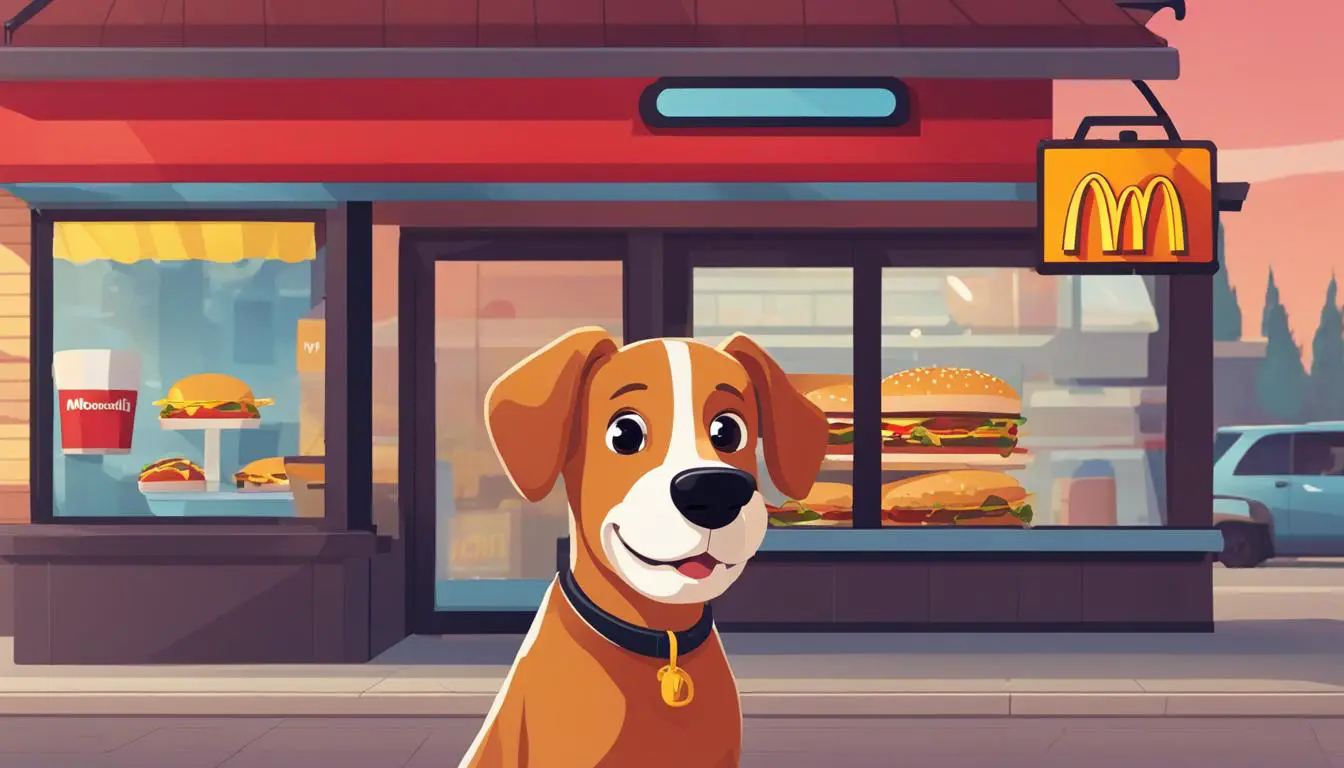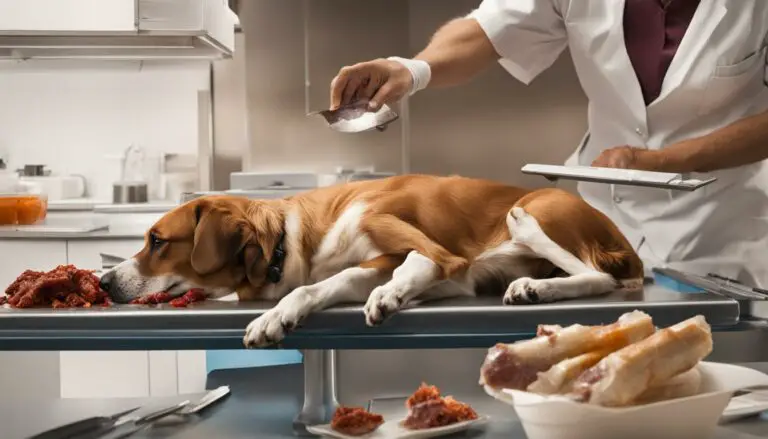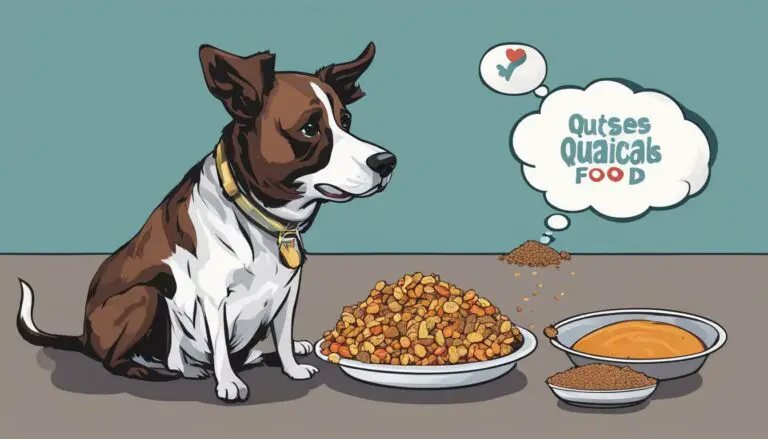Can Dogs Eat McDonald’s? Your Vet-Approved Guide
Navigating McDonald’s menu for your dog requires some caution. While the convenience of fast food is tempting, the high fat, sodium, and seasoning levels in McDonald’s offerings make it generally unsuitable for canine consumption.
Onions, commonly found in their menu items, are particularly toxic to dogs, and the excessive fat and carb content can pose health concerns.
However, if you find yourself in a bind and want to share a treat with your furry friend, there are better options. Opt for a plain grilled chicken sandwich without toppings or a bun, as it’s a relatively safer choice.
Remember, it’s crucial to stay informed about the potential risks and adhere to general feeding guidelines when considering McDonald’s for your dog.
The Dangers and General Guidelines for Feeding McDonald’s Food to Dogs
Feeding McDonald’s food to dogs requires caution to avoid potential risks. Follow guidelines to ensure your furry friend’s safety and well-being.
Dangerous Ingredients: Onions, found in several McDonald’s menu items, pose a significant threat to dogs, leading to severe harm even in small quantities. It’s crucial to avoid feeding onions to dogs due to their toxicity. Other toppings like pickles, mayo, and ketchup are high in sodium, which dogs are more sensitive to than humans.
Sodium poisoning can occur at around 1,500 mg per pound of body weight or one teaspoon for every four pounds. While most McDonald’s meals may not contain enough sodium to cause poisoning, it is still advisable to avoid more sodium meals.
High Fat and Carb Content: The high fat and carb content of many McDonald’s meals can also concern dogs’ health. While dogs need fat and carbs in their diet, it’s essential to provide them in moderation. Regularly feeding dogs high-fat McDonald’s meals can have negative health effects.
| McDonald’s Menu Item | Dangerous Ingredients | Health Concerns |
|---|---|---|
| Grilled Chicken Sandwich | Onions (usually included) | High fat and carb content |
| Burger | Onions (usually included) | High fat and carb content |
| French Fries | N/A (not toxic, but unhealthy) | High fat and sodium content |
| Ice Cream | N/A (may contain toxic ingredients) | Potential stomach upset |
Can Dogs Eat McDonald’s Burgers, French Fries, and Ice Cream?
When feeding McDonald’s food to dogs, it’s essential to understand the potential risks and consider healthier alternatives. While a plain grilled chicken filet from McDonald’s can be a better choice for dogs, burgers, french fries, and ice cream should be cautiously approached.
Burgers, even without the bun and toppings, can still be high in fat. Too much fat in a dog’s diet can lead to health issues such as pancreatitis, obesity, and bloat.
Though not toxic, French fries are typically fried in oil and contain excessive fat and calories. Feeding dogs fatty foods like french fries can negatively impact their overall health.
Ice cream, a popular treat, may upset a dog’s stomach and can contain ingredients like chocolate that are toxic to them. Limiting or avoiding feeding McDonald’s ice cream to dogs is best to prevent any potential health complications.
Table: Can Dogs Eat McDonald’s Burgers, French Fries, and Ice Cream?
| Food Item | Feeding Recommendation |
|---|---|
| Burgers | Remove the bun and toppings, and feed the patty in moderation |
| French Fries | Avoid feeding due to high fat and calorie content |
| Ice Cream | Limit or avoid feeding to prevent stomach upset and potential toxicity |
What to Do if Your Dog Accidentally Eats McDonald’s
If your dog accidentally consumes McDonald’s food, it is essential to take immediate action to ensure their safety and well-being.
While fast food is not ideal for dogs, certain ingredients commonly found in McDonald’s meals, such as onions, can be harmful. Here are some steps to follow if your dog accidentally eats McDonald’s:
Assess the situation: Identify what your dog ingested and how much. This will help assess potential risks and guide your response.
Look out for symptoms: Keep a close eye on your dog for signs of onion ingestion or sodium poisoning. Symptoms of onion toxicity may include vomiting, diarrhea, and abdominal pain. Sodium poisoning can cause vomiting, diarrhea, excessive thirst, and increased heart rate.
Contact your veterinarian: If you observe any worrisome symptoms or feel uncertain about potential risks, contact your veterinarian for expert guidance. They can offer professional advice tailored to your dog’s specific situation.
Follow your vet’s recommendations: Depending on the severity of the situation, your veterinarian may recommend various actions, such as inducing vomiting, administering activated charcoal, or monitoring your dog for any further complications.
Conclusion
In conclusion, while a plain grilled chicken filet or a burger patty from McDonald’s can serve as an occasional treat for dogs, it’s essential to prioritize their overall well-being. These fast-food options should complement, not replace, a nutritionally balanced diet tailored to meet their specific needs.
Investing in dog-specific food ensures they receive the necessary nutrients for optimal health. So, while sharing a McDonald’s meal with your furry friend can be a special moment, it’s crucial to maintain a focus on their health through a consistently balanced diet.
FAQ
Can dogs eat McDonald’s food?
While McDonald’s food is generally not the best choice for dogs due to its high fat, sodium, and seasoning content, some options can be considered an occasional treat. Knowing the dangers and general guidelines for feeding McDonald’s food to dogs is essential.
Are onions in McDonald’s food toxic to dogs?
Yes, onions are highly toxic to dogs, posing severe harm even in small amounts. It’s crucial to avoid feeding dogs McDonald’s menu items containing onions.
Why should dogs avoid toppings from McDonald’s, like pickles, mayo, and ketchup?
Dogs are sensitive to sodium, so avoiding high-sodium toppings like pickles, mayo, and ketchup is safer to prevent sodium poisoning.
Can dogs eat McDonald’s burgers?
While a plain grilled chicken sandwich without bun or toppings can be a better dog choice, even a 100% beef patty from McDonald’s can be high in fat. It’s essential to be cautious and check the nutrition and ingredient information before feeding any McDonald’s items to your dog.
Can dogs eat McDonald’s french fries?
McDonald’s french fries, while non-toxic, are rich in fat, calories, and salt. Excessive fat may lead to health problems, and high salt content can cause dehydration and salt poisoning in dogs. Restricting or refraining from feeding your dog french fries for their well-being is advisable.
Can dogs eat McDonald’s ice cream?
McDonald’s ice cream can upset a dog’s stomach and may contain ingredients like chocolate that are toxic to them. Limiting or avoiding feeding your dog ice cream from McDonald’s is best.
What should I do if my dog accidentally eats McDonald’s food?
If your dog accidentally eats McDonald’s food, monitoring for any potential dangers is essential. Ingesting onions can be particularly dangerous for dogs, even in small quantities. Look for signs of onion toxicity, such as vomiting, diarrhea, and abdominal pain.
If your dog ingests a large amount of McDonald’s food or shows signs of sodium poisoning, seek veterinary attention. In most cases, overeating McDonald’s food is unlikely to cause severe damage, but it can lead to an upset stomach.
Can dogs have McDonald’s food as an occasional treat?
While McDonald’s food differs from an adequately balanced doggy meal, some options can be an occasional treat. A plain grilled chicken filet without a bun or toppings can be a better dog choice.
However, it’s important to provide dogs with a nutritionally balanced diet that meets their specific nutritional needs and avoid relying on fast food as a regular part of their meals.






